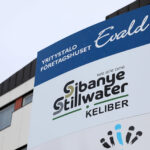Picture@KICO
A new phase in South Africa’s mining legacy is unfolding as the Gauteng Department of Health, in partnership with the Medical Bureau for Occupational Diseases (MBOD), launches Phase Two of the Ex-Mine Workers Social Security Benefits Programme.
The rollout taking place across four designated venues in the Ekurhuleni district seeks to trace and assist thousands of former mineworkers living with occupational lung diseases such as silicosis and tuberculosis (TB), ensuring they finally receive the compensation and medical care owed to them.
Phase One of the programme, implemented in the West Rand district, reached over 9,000 ex-mineworkers.
Of those, 539 completed formal Benefit Medical Examination tests an essential step toward accessing long-overdue compensation and support.
Now, authorities are calling on eligible individuals in Ekurhuleni to come forward and register between 21 July and 22 August 2025, weekdays from 8:00 AM to 4:00 PM, at venues including:
- Thelle Mogoerane Regional Hospital (Training Centre Hall, Nurses Home Area)
- Vosloorus Bertha Gxowa Hospital (Dr. Clarence Mini Hall)
- Tambo Memorial Hospital (Villa Nerina Hall, Boksburg)
- Pholosong Hospital (Auditorium and Lapa, Tsakane)
“This initiative aims to trace, register, and screen ex-mine workers with occupational diseases, ensuring that those who qualify can access their unclaimed benefits and medical surveillance,” the department stated.
📞 For assistance, ex-mineworkers and their families are encouraged to contact the MBOD Call Centre at 080 1000 240. Families of deceased mineworkers may also be eligible and are invited to participate.
A Legacy Reckoned With
For many former mineworkers, the battle with lung diseases began decades ago deep underground, where the air carried more than dust it carried a long shadow.
With little information and limited access to resources, thousands exited the industry without compensation, often leaving their families to bear the emotional and financial cost.
“I buried my father without ever seeing him get what he deserved,” says Thabo M, a community member in Tsakane whose father passed from silicosis. “This programme gives families like mine the hope that his pain wasn’t ignored.”
Socioeconomic Impact
The benefits programme is more than a health campaign—it represents a long-overdue investment in justice and dignity.
- Economic Relief: For surviving families and retired miners living below the poverty line, financial compensation can ease burdens and spark economic revitalization.
- Healthcare Access: The screening process facilitates medical surveillance for ongoing conditions, giving ex-mineworkers a route back into care systems they’ve often been excluded from.
- Community Renewal: Ekurhuleni’s participation marks a pivot toward broader inclusion, echoing the call for better labor protections and long-term accountability within South Africa’s mining sector.
A Call to Action
As the mining sector continues to evolve, programmes like these reconnect past labor with present responsibility. They invite a conversation not just about industry legacy but about humanity.
If you or a loved one may qualify, don’t wait. Bring your Makhuluskop (Mineworker’s ID card), South African ID document, and any mining company paperwork to a registration site. Every name reclaimed and screened is a step toward restoring what was lost.
Read Also:Young Visionaries Powerfully Reshape Africa’s Mining Future – Jaina News
Africa’s Green Hydrogen Leap: A New Energy Era Begins – Jaina News








